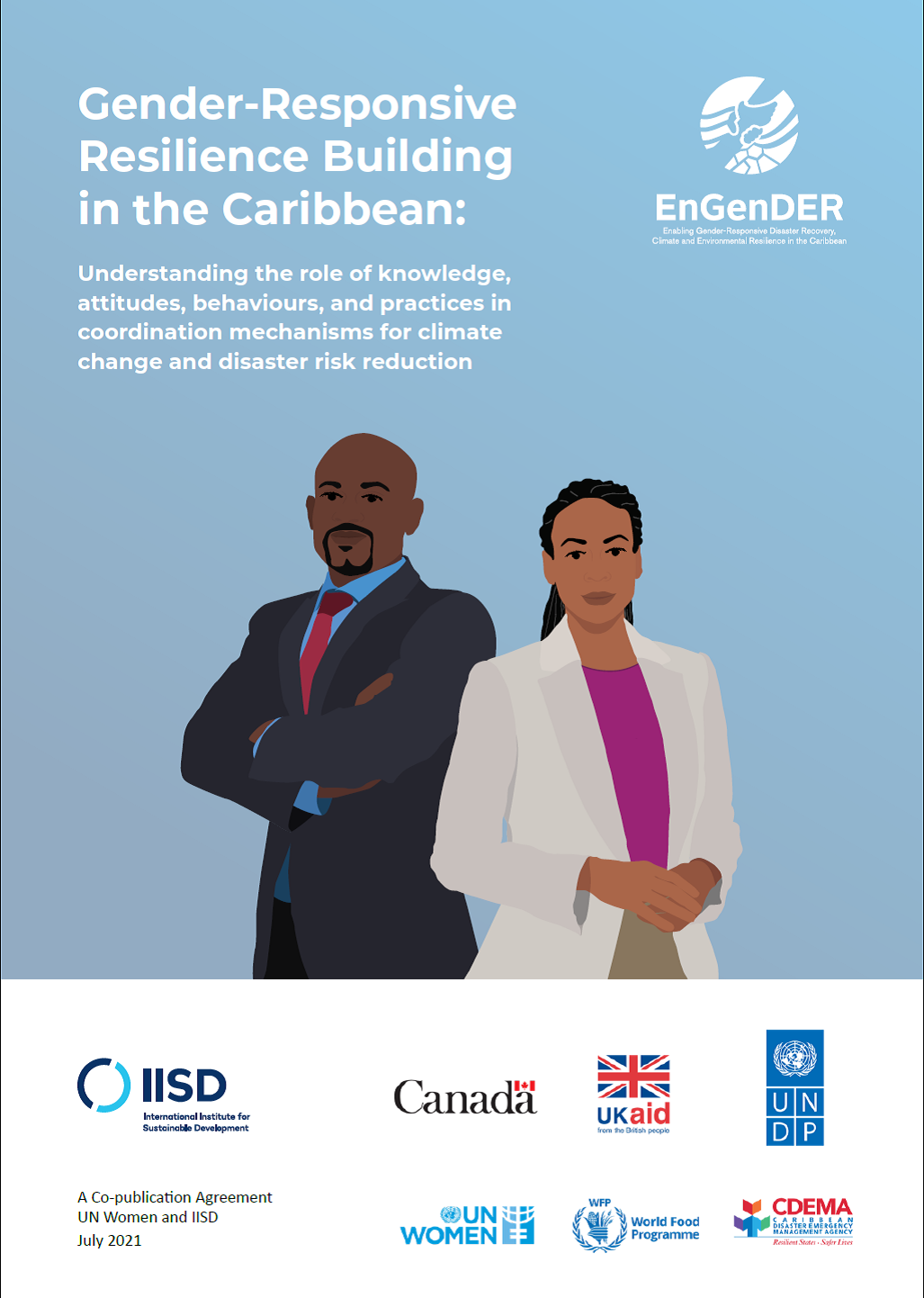
Gender-Responsive Resilience Building in the Caribbean: Understanding the role of knowledge, attitudes, behaviours, and practices in coordination mechanisms for Climate Change and Disaster Risk Reduction

Efforts to build resilience to climate change and disasters in developing countries will not be effective or sustainable if they do not take gender into consideration (National Adaptation Plan [NAP] Global Network & United Nations Framework Convention on Climate Change [UNFCCC], 2019; UNFCCC, 2015; Vincent et al., 2019). Policies, plans, and initiatives must take into account gender differences in roles and responsibilities, access to information, resources, and opportunities, and decision-making power. If they do not, there is a risk that they will reinforce, exacerbate, or create new gender inequalities. At the same time, the process of building resilience to climate change and disasters presents an opportunity to address gender inequalities if a concerted effort is made to take a gender-responsive approach in building resilience. This is recognized in key international agreements, including the Paris Agreement under the UNFCCC and the Sendai Framework for Disaster Risk Reduction (DRR).
A knowledge, attitudes, behaviours and practices (KABP) analysis was conducted by the International Institute for Sustainable Development (IISD), on behalf of UN Women, under the EnGenDER Project. It aims to increase understanding of gender-related perceptions and biases and how they play out in coordination mechanisms for climate change adaptation and disaster risk reduction (DRR) as a basis for determining how they can be challenged at the individual and institutional level. The analysis was developed based on data from nine countries: Antigua and Barbuda, Belize, Dominica, Grenada, Guyana, Jamaica, Saint Lucia, Saint Vincent and the Grenadines, and Suriname.